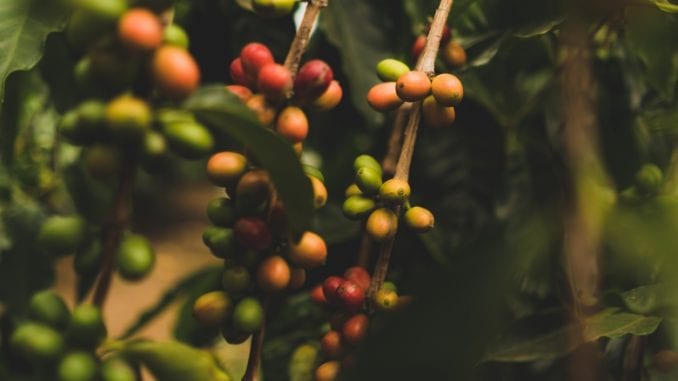
The Specialty Coffee Transaction Guide collects coffee prices from the last two harvest seasons to serve as a resource for coffee professionals buying and selling coffee.
BY CHRIS RYAN
BARISTA MAGAZINE ONLINE
Cover photo by Clint McCoy
In recent months, the topic of low coffee prices has been increasingly discussed among coffee professionals throughout the coffee supply chain, from the Specialty Coffee Association launching the Coffee Price Crisis Response Initiative to address the issue, to roasters holding events and initiatives focused on the cost of production of coffee. (We’ve featured farmers’ perspectives on the price crisis in our “C-Market Stories” series on Barista Magazine Online.)
As the discussion around coffee prices continues to evolve, a new resource has entered the picture: the Specialty Coffee Transaction Guide. Released in December 2018, the guide collects free-on-board (FOB) green specialty coffee prices from the last two harvest seasons (2016-17 and 2017-18) and divides them into categories such as quality, lot size, and producing region and country.
The guide’s purpose is to provide an alternative to coffee commodity prices—in which buyers have information that may empower them to pay above-market prices more likely to cover cost of production, and in which sellers have the information they need to sell at prices that come closer to covering costs—that coffee buyers and coffee producers can consult when building contracts.
The Specialty Coffee Transaction Guide is a collaboration led by Peter W. Roberts of Transparent Trade Coffee (TTC), an organization funded by the Goizueta Business School at Emory University in Atlanta, and Chad Trewick of Reciprocafé LLC, a consultancy focused on shared value and measured and meaningful coffee value chain support.

The guide came together after Chad discovered TTC’s efforts to publicize information on coffee contract pricing and contacted them about broadening the scope of the project. “I wanted to encourage Peter and his team to push further and consider broadening the data set by pursuing additional industry participants to serve as data donors,” Chad says. “The more data we have, the better pricing guidance we can offer—it’s that simple.”
With network of roasters already contributing to the TTC platform, the team working on the guide then sought to engage additional data donors. An informational meeting on the project at the 2018 Specialty Coffee Expo helped the team expand the network of donors, and at a June 2018 colloquium of TTC roasters, participants contributed to discussions that helped bring the guide to life. In total, the team managed to engage 21 specialty-coffee roasters and importers who were willing to share their data for coffee purchases over the last two seasons; the data donors included Caravela Coffee, Counter Culture Coffee, and The Coffee Collective. (View the complete list of data donors here.)
The Specialty Coffee Transaction Guide is now available for download in both English and Spanish; Chad says it was important the resource was available in multiple languages so a broad swath of the industry—particularly coffee producers—could access it. “We want coffee producers to be able to access the information so that they understand what it will take to get to pricing outcomes that can support them and their families (where today pricing is often a mystery to them),” Chad says. “The Transaction Guide clearly shows what the industry values and how, and producers need to know this.”
Chad adds that producers’ interest in accessing this information is indicated by the fact that 40 percent of the first 200 downloads of the guide have been of the Spanish version. He says that the guide is currently being interpreted into additional languages that will be made available in the future.
With the first Specialty Coffee Transaction Guide now complete, Chad is hopeful that buyers and sellers will use its data for the intended purpose of providing a starting place for negotiations that does not reference the C market. “We know that commodity prices have NOTHING to do with what it takes to produce top-quality coffees,” Chad says, “and we need to do better for our industry in order to do what we can to preserve access to what we need to call ourselves specialty.”
The team is already in the initial phases of work on the 2019 Specialty Coffee Transaction Guide, which they hope will have more financial backing that will allow them to strategically grow their roster of data donors.
To download your copy of the 2018 guide, visit the Specialty Coffee Transaction Guide website.

